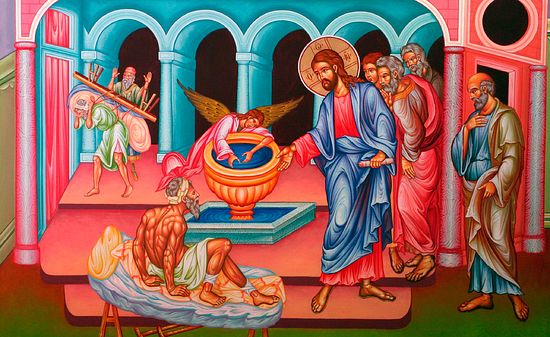 St. John Chrysostom,
St. John Chrysostom,
Homilies on the Gospel of John,
3. Saturday after Pasha,
John 15:17-16.2
These things
I command you, that you love one another.John 15:17
That is, It
is not to upbraid, that I tell you that I lay down My life for you, or that I
ran to meet you, but in order to lead you into friendship. Then, since the
being persecuted and insulted by the many, was a grievous and intolerable
thing, and enough to humble even a lofty soul, therefore, after having said ten
thousand things first, Christ entered upon this matter. Having first smoothed
their minds, He thus proceeds to these points, showing that these things too
were for their exceeding advantage, as He had also shown that the others were.
For as He had told them that they ought not to grieve, but rather to rejoice,
because I go to the Father, (since He did this not as deserting but as greatly
loving them,) so here also He shows that they ought to rejoice, not grieve. And
observe how He effects this. He said not, I know that the action is grievous,
but bear for My sake, since for My sake also ye suffer, for this reason was not
yet sufficient to console them; wherefore letting this pass, He puts forward
another. And what is that? It is that this thing would be a sure proof of their
former virtue. And, on the contrary, you ought to grieve, not because you are
hated now but if you were likely to be loved; for this He implies by saying,




















.jpg)



